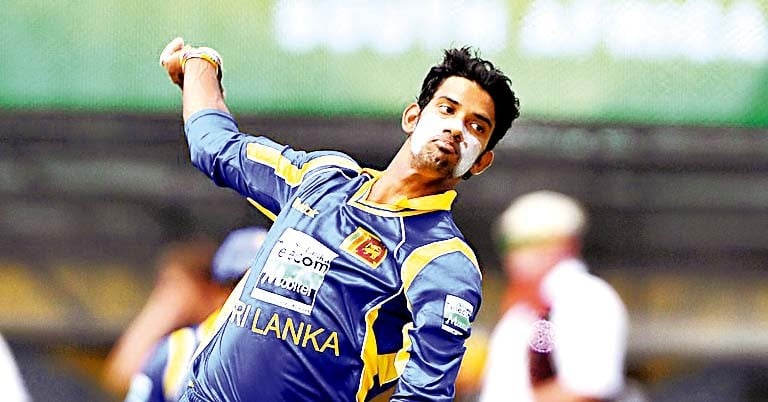
Cricket is an unpredictable game in which heroes become villains and a lethal weapon becomes a suicidal jacket for the bowlers

Cricket is said to be an unpredictable game, and everything related to the game of cricket seems unpredictable, you never know when heroes will become villains and how a lethal weapon becomes a suicidal jacket for the bowlers, especially off-spinners.
It all started in June when ICC’s Cricket committee, headed by Indian Anil Kumble, met in Bangalore to note that that there were a number of bowlers with suspect actions playing international cricket.
The committee also agreed that ICC’s reporting and testing procedures were not adequately scrutinising these bowlers and recommended some changes which intensified cases of players being reported by match officials.
Then the crackdown -- ICC’s war on bowlers with suspected illegal bowling action was launched -- Sri Lanka’s Sachitra Senanayke, New Zealand’s Kane Williamson and Pakistan’s Saeed Ajmal were suspended, three others -- Sohag Gazi and Al-Amin Hosssain of Bangladesh and Prosper Utseya of Zimbabwe -- were reported for the same reason.
The suspension of Saeed Ajmal put Pakistan Cricket authorities in a spin. They were unable to believe that their main weapon for the World Cup was cut out from the plan.
Following Saeed Ajmal’s suspension, Pakistan Cricket Board (PCB) decided to launch a (belated) crackdown on bowlers with suspected illegal bowling action at domestic level.
Shockingly, in few weeks after the commencement of the domestic season, PCB found at least 28 bowlers with suspected illegal bowling action, all reported by umpire’s naked eye. Ten of them were suspended from bowling further in the season for being reported twice - including Sohaib Maqsood (who has bowled three overs in international cricket) and former international Junaid Zia.
Seventeen of 29 bowlers reported for the illegal bowling action were playing Cricket at U19 level and they’ve an ample time for remedial work on their action, but it is still unclear what mechanism PCB would adopt for the bowlers being reported for the suspected action.
One understands that the normal procedure is likely to be followed, which says the bowler should report at NCA within 21 days of being reported, but it seems that the procedure will be put on back burner as PCB’s priority is to get Saeed Ajmal’s action cleared before the World Cup.
One may feel that following ICC’s crackdown, PCB is being harsh and local umpires are being over-efficient, but the fact that the action against chucking was long due and it should be welcomed, although after years of negligence.
If Umpire Riazuddin is to be believed, he reported Saeed Ajmal for a suspected bowling action in 2006, but PCB overlooked it. Former captain Aamir Sohail’s claim that he advised PCB to keep an eye on Ajmal’s action adds volume to the argument that PCB, indeed, was least bothered about illegal bowling action problem, which became an epidemic in our Cricket.
Chucking, or illegal bowling action, is not something new in cricket. If we talk about cricket culture in Pakistan, a lot of boys playing cricket at streets can be heard using term "Batta" for chuckers, the same "batta bowlers" go to club Cricket and from there they get opportunity to play first class and some of them get a chance to represent country.
In this entire process, there is no or very little attention paid to the bowling action, and there was no mechanism available to deal with such cases. It was Saeed Ajmal’s case that prompted the board to form a committee to deal with illegal bowling actions. Before Ajmal’s case, no one in PCB was really bothered.
With the Quaid-e-Azam Trophy starting next week, one may hope that PCB will continue its war against bowlers with suspected illegal bowling action, but it should not be limited to merely reporting and suspending them. Instead, the board should take concrete measures to correct the bowling action.
Simultaneously, PCB should develop proper coaching staff to employ with regional teams, specially at U19 level to work on bowling actions of players before they’re reported and their confidence is shattered. And, instead of shedding tears and finding conspiracies for suspension of "our players", we must continue to encourage the battle for empowering the laws of the game.